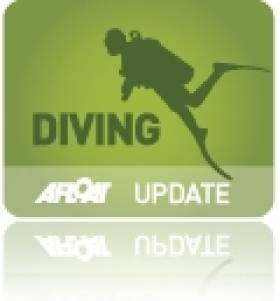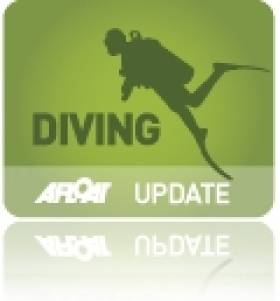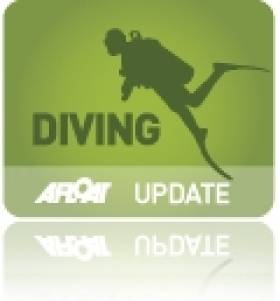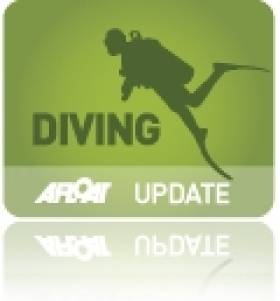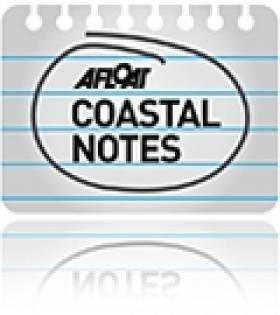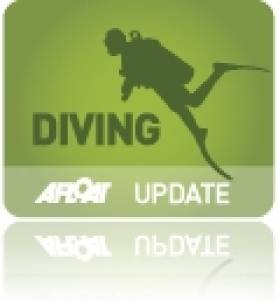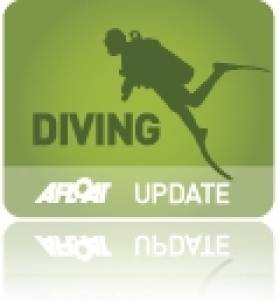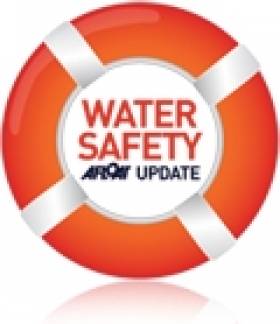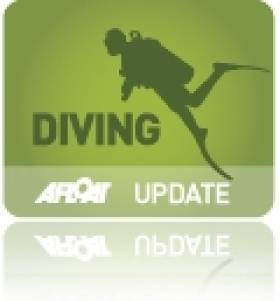Displaying items by tag: diving
Body of Irish Fisherman Recovered in Scotland
#NEWS UPDATE - A fisherman whose body was found in a Scottish harbour on St Stephen's Day has been identified as that of a 34-year-old Donegal man, the Belfast Telegraph reports.
Philip Anthony Toland, from Glengad in Inishowen, Co Donegal, was last seen on Christmas Day near the pier at Ullapool harbour in the Scottish Highlands.
As BBC News reports, concerns were raised later that evening and a search was launched involving police, coastguard and RNLI lifeboat teams.
The body was located by a police dive team in the sea near the pier when the search resumed on Monday morning.
It is being speculated that Toland - who has an eight-year-old son - may have slipped and fallen into the water while returning to his boat.
Record-Setting SCUBA Diver is Ireland's First Professor of Midwifery
#DIVING - A Guinness World Record holding SCUBA diver has been appointed as Ireland's first ever Professor of Midwifery, the Galway Advertiser reports.
Prof Declan Devine, who is a leading seararcher and scholar in the field, will take up the role at NUI Galway's School of Nursing and Midwifery.
His expertise in childcare goes in tandem with his efforts to raise funds for the care of children with serious illnesses. He serves as director of West of Ireland children's cancer charity Hand in Hand.
Prof Devine has also combined his charitable activities with his passion for SCUBA diving, raising more than €35,000 in 2009 when he set the Guinness World Record for the longest open saltwater SCUBA dive in cold water.
The Galway Advertiser has more on the story HERE.
Body of Cave Diver Recovered After Six Days
A British rescue team has finally recovered the body of the Polish man who died while cave diving in Co Galway, some six days after he was first reported missing.
As previously reported on Afloat.ie, 34-year-old expert cave diver Artur Kozlowski failed to re-emerge from a dive near Gort on 5 September.
His body was located last Tuesday evening in the deepest section of the cave, some 52m below the surface.
But it took till Saturday for a team of cave rescue experts to safety recover the body from the narrow passage nearly 1km into the cavern.
Three British caving experts worked with the Irish Cave Rescue Organisation and gardaí on the dangerous operation.
The Speleological Union of Ireland offered its condolences to Kozlowski and his family, who have travelled to Ireland.
In a statement, it said: “This is an unforgiving sport requiring extreme mental and physical fitness, but it was Artur’s passion.”
The Irish Times has more on the story HERE.
Search to Resume for Missing Cave Diver
The search will resume today for a Polish diver reported missing yesterday near Gort in Co Galway.
The Irish Times reports that the man, believed to be in his 30s, was exploring a cave in the area solo yesterday afternoon, but failed to emerge as expected in the evening.
The Irish Coast Guard said the man is known to be a very experienced spelunker, but that he only had enough oxygen to last six hours.
A search was conducted last night in the by a friend of the man and another experienced diver which turned up nothing.
The flooded cave is estimated to be 52m deep, of the kind suitable for experienced divers only.
Afloat.ie will update with more information as soon as it arises.
How the Lusitantia Artifacts were Raised By Diver Eoin McGarry
Earlier in the month Waterford diver Eoin McGarry led the technical dive team on the expedition that was carried out by National Geographic Broadcasters for a two hour documentary special which will be aired in May of next year in time for the anniversary of the sinking of Lusitania. Due to contractual agreements McGarry cannot discuss the details of that expedition but the recovery of artifacts was executed by him and and a specialised dive team, and the details of that he reveals here to Afloat.ie readers.
The recovery of artifacts took place on the 22nd of this month as a continuation of Gregg Bemis's five year license. As recovery of artifacts was not on the Nat Geo agenda, their primary objectives were for a forensic examination of the wreck. Subsequently, it was decided by Gregg Bemis and myself to return to the wreck and recover some significant items from the wreck while his licence was still active. Agreement from the Irish Underwater Archaeological Unit and the National Museum of Ireland was necessary for this recovery to proceed as the surrounding site and wreck of the RMS Lusitania is a designated National Monument, and while carrying out the recovery we were monitored by the Irish Naval Service.
Many hours of research involving global positioning satellite information, multibeam data and side scan sonar images of the site were carried out to determine the exact location from which to recover the objects. This is very important due to the physical size of the wreck site, as if you land in the wrong area of the wreck the dive could or would be wasted. Once determined, the remainder of the proposed expedition had to be put in place, a dive vessel suitable in sized and also had to be able to cater for divers, a specially designed lifting vessel that would be able to recover the heavy phosphor bronze bridge telemotor, the dive team, all necessary paperwork and most importantly... the weather.
Once all were in place, all were put on standby until a suitable weather window opened up, and that was to be the 22nd of Aug. The dive vessel was the "Harpy" owned and skippered by Karl O Donoghue out of Kinsale, the lifting vessel was the "Ron Carraig" owned and skippered by Gavin Tivy and Pat Waide out of Youghal, the dive team was myself Eoin McGarry who led and orgainised the recovery operation, Philip Murphy, Frank McKenna, John Corbett, Barry McGill and Stewart Andrews.
The wreck lies 11 and a half miles off the Old Head of Kinsale in 93meters / 300ft of water , which makes it a challenging dive, there are also the considerations of poor visibility, tangled fishing nets and unexploded depth charges to contend with. A dive with a half hour on the the wreck will result in a total runtime of 2.5hours, that is where the diver has to carry out the mandatory decompression stops or suffer severe decompression illness.
The items recovered were the bridge telemotor, a bridge tell tale indicator, 2 large square window type portholes with detailed filigris and 2 round type portholes. The recovered bridge instruments will be examined to see if they will yield vital information during the final moments of Lusitania as it was sinking. It is expected that some of these items will be donated to Irish museums.
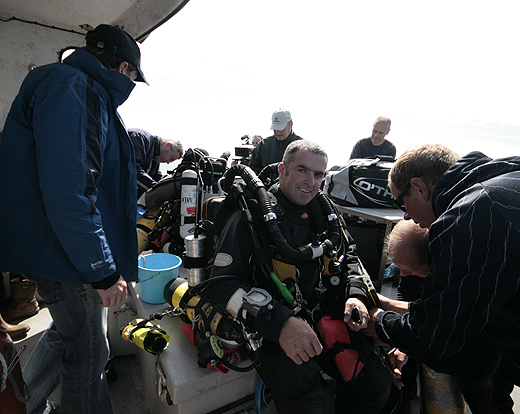
Eoin McGarry gets kitted up for the dive on the Lusitania
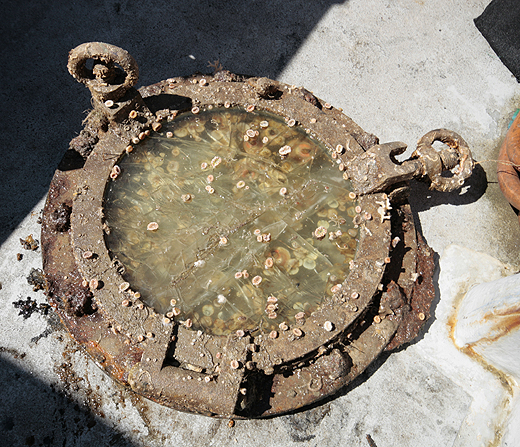
A round type porthole
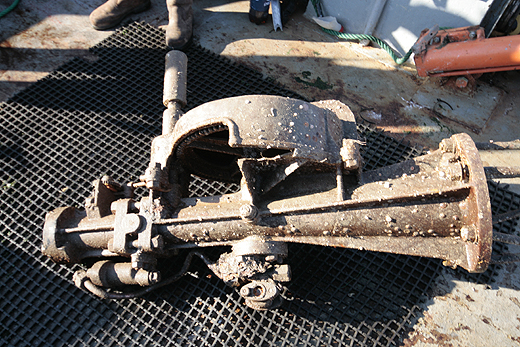
A telemotor
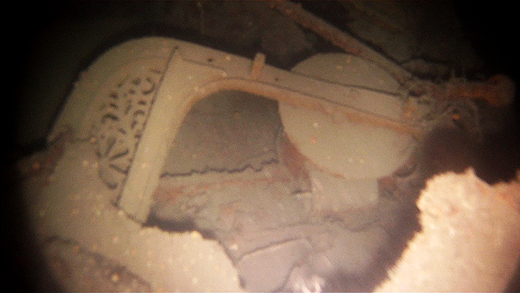
An underwater shot of the recovered large decorative porthole
Lusitania Divers Recover a Number of Items
Divers at the wreck of the Lusitania have recovered important items from the ill-fated cruise liner, The Irish Times reports.
The haul includes a bronze telemotor (part of the ship's steering mechanism), a telegraph that assisted in navigation, and a number of portholes.
It is hoped that some of these might shed some more light on how the ship was lost off the Cork coast, after she was torpedoed by a German U-boat in 1915.
The items are currently being held by Customs and Excise under the 1993 Salvage and Wreck Act until title can be established.
As previously reported on Afloat.ie, Lusitania owner Gregg Bemis is currently mounting what might be the final major dive expedition to the wreck site.
The Irish Times has more on the story HERE.
Sports Diving Injuries On The Rise
The Irish Underwater Council (ICU) says injuries in sports diving are increasing, the Irish Examiner reports.
Some 12 of a total of 61 registered incidents last year caused injury to divers. Other incidents included near-misses between boats, divers going missing, air shortages and rapid ascent.
ICU national diving officer Martin Kiely said the figures did not necessarily show that more incidents were occurring, but rather that more were being reported.
The Irish Examiner has more on the story HERE.
Body of Drowned Diver Returned to Family
The body of the Irish student backpacker who drowned while scuba diving in Australia recently was returned to her family yesterday.
As previously reported on Afloat.ie, 23-year-old Elaine Morrow from Ballintra, Co Donegal, had been on a beginner's diving course off the coast of Queensland on 18 April when she became separated from her group and failed to surface.
The Irish Independent reports that her funeral will take place tomorrow afternoon, after a service at Drumholm Parish Church of Ireland in Ballintra.
Boy Drowns in Liffey, Diver Treated for Bends
Gardaí have confirmed that a 14-year-old boy drowned in the River Liffey near Clane, Co Kildare on Saturday.
According to The Irish Times, it is believed the accident occurred while the teen was playing in the river with friends. His body was removed to Naas hospital.
Elsewhere, RTÉ News reports that a diver is being treated for the bends after getting into difficulty in the sea near Kilkee, Co Clare on Sunday.
The man was airlifted by the Shannon coast guard to Galway's University Hospital after being retrieved by colleagues.



























